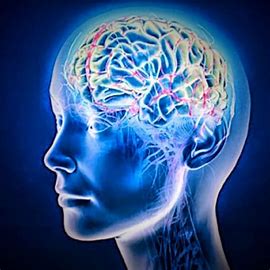Introduction
Alzheimer’s disease is a progressive neurological disorder that affects millions of people worldwide. It is the most common cause of dementia, a syndrome characterized by cognitive decline and memory loss. In this article, we will explore the key aspects of Alzheimer’s disease, including its causes, symptoms, diagnosis, treatment options, and the importance of support for individuals and families affected by this debilitating condition.
The Basics of Alzheimer’s Disease
Alzheimer’s disease is a complex condition that affects the brain, leading to the gradual degeneration of nerve cells and the formation of abnormal protein clumps known as amyloid plaques and tau tangles. These changes disrupt the communication between brain cells, impairing cognitive function and memory.
Common Symptoms
The most common early symptoms of Alzheimer’s disease include memory loss, difficulty with problem-solving and planning, confusion, language problems, and challenges in performing familiar tasks. As the disease progresses, individuals may experience mood swings, personality changes, disorientation, and a decline in overall cognitive abilities.
Causes and Risk Factors
The exact cause of Alzheimer’s disease is not yet fully understood, but it is believed to involve a combination of genetic, environmental, and lifestyle factors. Advanced age is the most significant risk factor, with the majority of cases occurring in individuals over 65 years old. Family history, certain genetic mutations, cardiovascular conditions, and chronic diseases like diabetes and obesity may also increase the risk.
Diagnosis and Early Detection
Diagnosing Alzheimer’s disease can be challenging, as there is no single test to definitively confirm its presence. Physicians typically rely on a comprehensive evaluation that includes medical history, cognitive assessments, neurological exams, and brain imaging. Early detection is crucial as it allows for the implementation of interventions and support services to manage symptoms and improve quality of life.
Treatment and Management
While there is no cure for Alzheimer’s disease, several treatment options are available to manage symptoms and slow down the progression of the disease. Medications such as cholinesterase inhibitors and memantine can help improve cognitive function and manage behavioral symptoms. Non-pharmacological approaches, including cognitive stimulation, physical exercise, and social engagement, are also beneficial. Caregiver support and assistance play a vital role in ensuring the well-being of individuals with Alzheimer’s.
The Impact on Individuals and Families
Alzheimer’s disease has a profound impact not only on individuals diagnosed with the condition but also on their families and caregivers. Providing care for someone with Alzheimer’s can be emotionally and physically demanding. Support groups, respite care services, and educational resources are available to assist families in navigating the challenges associated with the disease.
Ongoing Research and Future Directions
Researchers and scientists are actively studying Alzheimer’s disease to deepen our understanding of its causes and develop more effective treatments. Advancements in neuroimaging techniques, genetic research, and biomarker identification hold promise for earlier detection and targeted interventions. Clinical trials and studies focus on developing disease-modifying therapies to slow down or halt the progression of the disease.
Alzheimer’s Disease and Public Health
Alzheimer’s disease presents significant public health challenges, given its prevalence, impact on healthcare systems, and economic burden. Raising awareness, promoting early detection, and supporting research efforts are essential components of public health strategies aimed at addressing Alzheimer’s disease at a societal level.
Support and Advocacy
Support organizations and advocacy groups play a crucial role in raising awareness, providing resources, and advocating for policies that benefit individuals with Alzheimer’s disease and their families. These organizations offer a range of services, including helplines, caregiver support, educational materials, and research funding.
Conclusion
Alzheimer’s disease is a devastating condition that affects millions of individuals worldwide. While there is currently no cure, early diagnosis, management of symptoms, and support from healthcare professionals and caregivers can significantly improve the quality of life for those affected by the disease. Ongoing research and public health initiatives offer hope for advancements in prevention, treatment, and support services for individuals and families impacted by Alzheimer’s disease.

